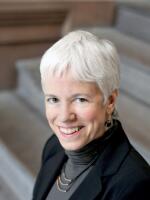Now that PreetBharara is no longer the U.S. Attorney for the southern district of New York, some in Albany wonder who will now be investigating potential corruption.
Bharara’s office engineered the successful prosecutions of both major party legislative leaders. Former Assembly Speaker Sheldon Silver and former Senate Majority Leader Dean Skelos, along with his son, face long prison sentences for corruption.
The U.S. attorney fired by President Trump’s Justice Department, has also brought cases against nine former associates of Governor Andrew Cuomo, including the governor’s former closest top aid.
Blair Horner, with the New York Public Interest Research Group, is a veteran of the fits and starts of reform efforts in New York. He says Bharara is a “once in a generation figure”, and his exit will “leave a huge hole in the ethics landscape”.
“It’s always been a desert when it comes to enforcement of ethics and contracting laws at the state level,” said Horner. “We all relied on Preet Bharara to bring actions if people behaved badly.”
Horner says the absence of Bharara “draws the focus back to the weakness” of the state’s ethics laws and review agencies.
Horner says Cuomo and lawmakers could start to take steps to prevent further corruption in the future. He says the state comptroller should regain powers to monitor economic development contracts. The comptroller’s oversight power was written out of the process in a 2011 law. Cuomo is proposing that instead, he be allowed to create a special inspector general within his own administration to monitor economic development projects.
Horner says the troubled Joint Commission on Ethics should be revamped and strengthened to truly probe allegations of corruption. The Commission is dominated by the governor’s appointees. The other members are chosen by the legislature.
“The state spends millions of dollars for a state ethics watchdog. It should be independent and empowered to enforce the law,” Horner said. "Right now, it's made up of political appointees appointed by the governor and the legislative leaders. The very same people that are supposed to be monitored. That's not independent. We want independent oversight."
Meanwhile, in their one house budget proposals, the Assembly and Senate are asking for more transparency, at least in relation to some of the governor’s economic development programs, which have been the subject of Bharara’s probes.
Assembly Democrats want the governor’s Regional Economic Development Councils, which consist of regional business and other leaders, to disclose their personal finances, just like other state government boards. The regional councils hand out around $750 million in economic development grants each year.
The Assembly also wants to set up a public, searchable data base of all companies awarded contracts with the state.
The Senate Republicans’ budget plan also requires greater disclosure from Cuomo’s regional economic development councils. And it rejects rebranding the governor’s troubled Start Up New York tax free program. Senators are calling instead for a moratorium and more study on whether the program actually works.
Governor Cuomo appeared publicly several times in the days after Bharara’s exit, giving briefings on a major Nor’easter that swept the state. Reporters were told to keep on topic in their questions, but Cuomo, appearing on CBS This Morning, was asked in a live segment for a reaction to the firing of the U.S. attorney who has indicted several of his former associates. Cuomo demurred.
“I didn’t follow the situation,” Cuomo said on CBS This Morning. “There’s a transition from one administration to the next. But beyond that, I haven’t followed it.”
The trials of the former Cuomo associates are still scheduled to begin later this year.










